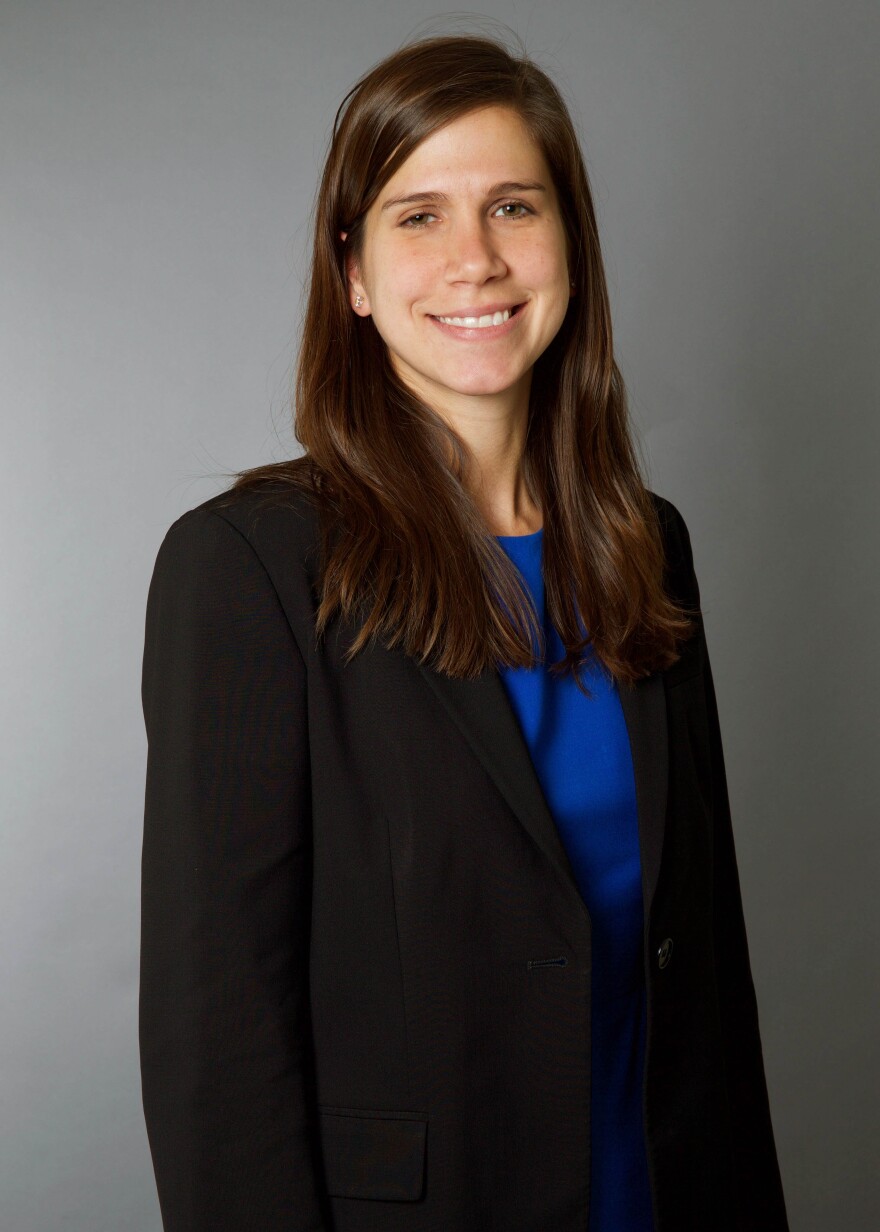Emily Schultz is the director for state advocacy and policy with the National Alliance for Public Charter Schools. Lawmakers consulted her as they shaped the education reform bill recently signed into law that allows for the establishment of charter schools in West Virginia for the first time in the state’s history. But Schultz wasn’t happy with all the aspects of the final bill.
***Editor's Note: The following has been lightly edited for clarity.
Q: Obviously, West Virginia hasn't ever allowed charter schools before. Tell us why you think this is such an important development.
Schultz: I know that West Virginia has 55 county school boards. And that's pretty much your only construct for public schools. There aren’t magnet schools, there are no other forms of school choice.
So this would be kind of your first foray into have true public school choice. And I think it can add a lot of value in terms of just providing opportunities to innovate for educators and providing more choices for parents.
Q: How were you involved in shaping the legislation that was passed?
Schultz: I gave some feedback on some drafts and provided some language from our model law – we have a model law that we encourage states to consult and look at when they are constructing their public charter school legislation. [That model] is really kind of a conglomeration of what we see across the country as best practices to support the growth of a quality charter school sector.
Q: What’s your reaction to the charter specifications in the final version of the bill?
Schultz: We were disappointed -- one of the provisions that we have seen as really important to supporting the growth of a high-quality public charter school sector is to have multiple authorizers. Authorizers are the entity that decide when and where a public charter school can open. Authorizing structures look different across states, but we usually recommend having at least two pathways or two authorizers in place so that applicants can make their case for opening a school to a couple of different entities. And unfortunately, in West Virginia's law, the only authorizers our local school boards. And we do have local school boards across the country that do this work well, being an authorizer -- being a quality authorizer -- is very different than the traditional work of a school board.
So we usually encourage there to be some opportunity for an applicant to apply to either, you know, a local school board, sometimes it's a statewide commission, sometimes it's the state board, and sometimes the public university. Unfortunately, the legislation that West Virginia past does not include those alternative authorizers.
Q: What about other aspects of the bill? What do you think lawmakers have done really well?
Schultz: Certainly, all the economies that make charter schools charter schools are included -- they have flexibility around budget and staffing. We encourage states to make sure that a public charter school student is "worth" as much as a traditional district school student. And just because their parent makes the choice to send them to a public charter school, we don't think that they should receive any less public dollars. [The bill] gets close to that. I believe 90 percent of public funding follows a student to a public charter school. So those are important provisions that I think are steps in the right direction.
Q: Are there rural states that have incorporated charter schools really well?
Schultz: There's nowhere like West Virginia, but I think in terms of some of the similarities in terms of kind of the large rural districts, with not a lot of students, Idaho is a is a state that we look at a lot. One really interesting component that Idaho has managed to do well is really find ways to partner with the traditional district school system and encourage them and support those local school systems to use charters as a tool to be more innovative within the district. So they are kind of just starting this network, and they've had a charter law for a number of years -- so it's taken a while. But I do think that there has to be a tailored approach in a state that is predominantly rural. And I think Idaho has really managed to, to find that.
We don't think of Ohio as a rural state, but I think there are some rural parts of Ohio that have used and we actually point to, not far from the West Virginia border. In Ohio in a rural community, Portsmouth they use the charter school model to avoid consolidation, to avoid losing their local public school. And I think that that's the scenario that can be instructive for West Virginia. I know a number of West Virginia districts have struggled with [consolidation].
Q: We've heard from critics that in West Virginia here have been other means by which the state has found ways to explore innovative approaches to education -- and that the state really just cannot afford charter schools as we are coping with a substance use disorder epidemicthat is really hitting the classrooms hard. Pulling more funds from the public schools that do exist amidst this crisis scares a lot of parents and teachers alike. What do you say to them?
Schultz: One of the things that's important to remember about charter schools is that they are kind of the ultimate in flexibility and autonomy at the school level. So those decisions that most impact students are pushed to the adults that are closest to those students -- parents and teachers in that school.
I don't think there is a more tailored or personal way to address the trauma and the challenges that students in this scenario you just described face. The principal and teacher in a school know what those students need more than a school board that's potentially hundreds of miles away. So this really gives the opportunity for a school look at its budget and say, "What is going to best serve our students?" It's true flexibility and autonomy for those schools to solve those kinds of problems.
Emily Schultz is the director for state advocacy and policy for the National Alliance for Public Charter Schools. Prior to joining the National Alliance, she served as the executive director of the Alabama Coalition for Public Charter Schools.
Emily started her career in education as a second-grade teacher at Cascade Elementary in Atlanta through Teach for America. She is an Alabama native and has an undergraduate degree in Political Science and Educational Studies from Carleton College, and a Master in Education Policy from Stanford University.











